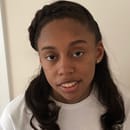While for some, the pandemic inspired new activities, I reverted to a lot of my old ones. Reading is inherently included in this, of course, but it also includes activities peripheral to the literal act of reading. For instance, I did my library’s summer reading challenge for the first time in a few years. I’m not sure what it is about recording numbers on a website that feels so gratifying – maybe it’s the knowledge that I’m making progress toward a tangible goal – but it kept me going for six weeks.
Aside from this serving as another reminder to actively invest in the things I care about, even and especially when other obligations draw me away, I now have a list of most of the books I’ve read since April. Here’s my thoughts on some of them:
- The Ballad of Songbirds and Snakes, Suzanne Collins
-
It’s been years since I read the original Hunger Games trilogy, but I was still excited when the prequel was released in May – even amidst the rumors that a young President Snow would fall in love with the female tribute from District 12. (Spoiler: They weren’t rumors. That’s the actual plot.) Given the premise, I was concerned that all 500+ pages of the book would be spent convincing readers that Snow was actually a good person. Fortunately, I was proven wrong.
Although I enjoyed reading it, Ballad is not a story that I’m particularly attached to. Most of my positive associations with the book actually come from talking about it with other people – being able to share my thoughts and theories on the story, as well as my nostalgia for the original books, without it being linked to a formal “book club” or academic setting brought me genuine joy. It’s the feeling of camaraderie that comes with having a similar experience to someone else and being able to share in it together.
- The first Harry Potter
-
Yes, I went 19 years of my life without reading Harry Potter. Since the series was such a cultural phenomenon, I was able to absorb the most important elements of the story without actually looking at the source material. That being said, I didn’t feel the same sense of awe or wonder that other people seem to have when they talk about the series. This could be because I didn’t grow up reading it, like The Hunger Games or Inkheart or any of the similar books I read when I was younger. The knowledge that it was so popular definitely colored my view of the story – yet, I had to remind myself to enjoy it organically rather than forcing it.
So, I did. Daniel Radcliffe deserves his flowers for writing the entire series.
- The Yellow House, Sarah Broom
-
I’ve always loved reading about histories, whether it’s about family or culture or how something came to be. The Yellow House was perfect for fulfilling that need. This memoir focuses on Broom’s family, which grew up in New Orleans in the eponymous yellow house. Aside from being a pleasant nighttime read, I was also mesmerized by the writing and how Broom drew in quotes from other authors I had read before. At the very beginning of the book is an excerpt from Kei Miller’s The Cartographer Tries to Map A Way to Zion, which I studied for what was essentially my “senior thesis” in high school, so I was happily surprised by that. It drew me in before the memoir even began.
- Catherine House, Elisabeth Thomas
-
I remember being really excited to read this book once I read a description of it on Electric Literature. It had a cool concept – creepy school in the middle of nowhere, ooooooh – and it seemed to be getting great reviews. Unfortunately, I didn’t enjoy it as much as I wanted to.
The story follows Ines, a girl who gets accepted to a super selective school called Catherine House. Everyone who graduates from the school is guaranteed to become successful, as long as they live in the house for three years and give up things like calling their parents or having any access to the outside world. Eerily enough, there are real schools that had systems of determining privileges similar to the one in Catherine House. The thing is, Ines does not earn any of these privileges because she is detached and failing her courses, to the point where an instructor tells her that she is at risk of expulsion.
The way Ines drifts through each day aimlessly almost reminds me of Speak by Laurie Halse Anderson, in which Melinda spends a lot of time languishing on her own as a result of her trauma. The difference is that despite there also being a great emphasis on introspection, Melinda’s story still feels like it’s progressing. With Catherine House, it felt like the narrative would take a step forward and then another two steps back. Ines’ backstory is eventually revealed the further you get into the story, but I think I got about 40% in and was still questioning what the point was.
- Know My Name, Chanel Miller
-
First-years probably recognize this title as this year’s Common Read, the book that you were all supposed to read over the summer although it’s likely that a significant portion of you still didn’t. (Happens every year.) I’ve been wanting to read Miller’s memoir since it was first released in 2019, and I only just got around to it in June. I expected it to be a difficult read given the subject material, but I could not anticipate the full effect of Miller’s words. It especially didn’t help that I read the first few chapters while streaming the new Phoebe Bridgers album, which is honestly one of the worst things I could have done to my emotional state.
Regardless, Miller is so skillful with words that I wanted to stop reading and simultaneously couldn’t put it down. Know My Name is worth investing in, not only because of what it says about sexual assault but also what it says about identity and how to define who you truly are.
Loop Lit runs once a month on Tuesdays or Thursdays.


